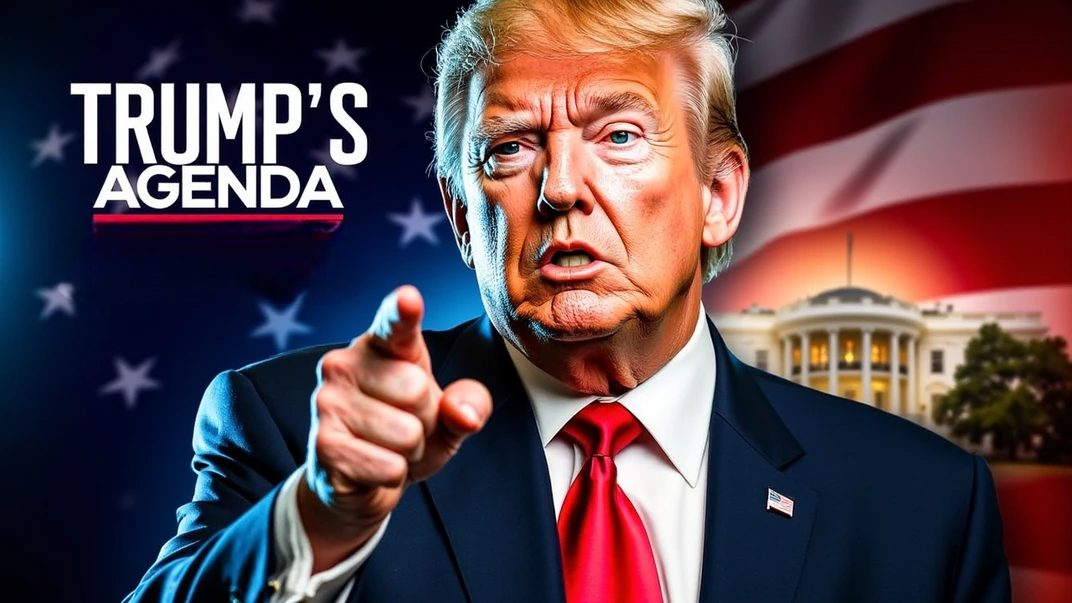Donald Trump has taken office for his second term as the 47th President of the United States, pledging big, obviously controversial projects and an unrelenting push toward his “America First” philosophy.
These wide reformations and executive actions colonize the broad political boundaries within which Trump can refocus the domestic and foreign policy agenda, thus shaping his grand vision. Below follows a capsule of some of his main policies and their possible implications.
Table of Contents
1 Paris Climate Agreement
2 Border Control
3 DOGE
4 Capitol Riot Participants
5 Trade Policies
6 BRICS Nations
7 China Tariffs
8 Social Policies
9 National Unity
10 Workforce Policies
11 National Security
12 Energy Independence
13 Israeli Settlements
14 Global Tax Agreement Rejection
15 Environmental Policies
16 Significant
17 FAQs
Paris Climate Agreement

Trump reiterated his stance on prioritizing economic growth over environmental concerns by withdrawing from the Paris Climate Agreement. This policy appealed to those outside the mainstream, and for it received sharp criticism from eco-people and global climatists.
Border Enforcement
Trump signed several executive orders to revert the immigration policy that Biden had implemented with stricter border controls. In addition, he wanted to deport undocumented immigrants and, more importantly, declared an invasion at the southern border, which indicated some military approach to immigration law enforcement.
Department of Government Efficiency
In order to streamline the federal government, Trump established the Department of Government Efficiency (DOGE) with Elon Musk at its helm. While the purpose was to streamline bureaucratic procedures, critics raised concerns about the corporate control of public administration. Legal opposition to DOGE’s activities would remain another hurdle.
Capitol Riot Participants
By pardoning the insurgents involved in the Capitol riots, Trump polarizingly induced a display of loyalty towards his base. While it was music to the ears of his supporters, it further estranged those who considered the riots a grave attack on democracy.
Trade Policies
Some of Trump’s unheard tweets on the issue of trade included tariffs on imports from Canada and Mexico, which he argued operated as a front-line defense against inflation. In turn, he pushed for deregulated production of energy, with the interest of lowering energy prices for consumers, even though critics warned that this could have long-term damaging consequences on the economy.
BRICS Nations

Trump threatened 100% tariffs on BRICS countries, noting their reduced use of the dollar in international trade. This protectionist measure showing that he was fighting to maintain U.S. economic hegemony stood contrarily with the jeopardy of becoming very damaging to U.S. diplomatic relations with emerging economies.
China Tariffs
Despite keeping a hardline on trade, Trump postponed tariffs on China to focus on broader global trade practices. It was a cautious move that hinted on a possible step towards measured negotiations with Beijing.
Social Policies
Trump dismantled diversity, equity, and inclusion (DEI) initiatives in federal agencies and rolled back protections for transgender individuals. These policies aligned with his conservative base but provoked strong opposition from civil rights groups.
National Unity
While seeking to unite his base, Trump’s actions—such as pardoning Capitol riot participants—undermined calls for broader national unity and accountability.
Workforce Policies
He froze federal hiring and stopped regulatory efforts to shrink government operations. The return-to-work order to federal employees by him was seen as a rollback of pandemic-era normality, and remote workers strongly resisted this action.
National Security
Trump postponed a ban on TikTok while investigating U.S.based purchasers for the app. An excellent balancing act between national security concerns and the app being more popular among the youth proves his pragmatic approach to digital platforms.
Energy Independence
Trump’s decision to end the import of Venezuelan oil while focusing solely on domestic energy production worked towards his ambition of energy independence. However, the choice came with an added risk of heightened tensions with foreign oil suppliers.
Israeli Settlements
Trump’s sanctioning of organizations in the Israeli settlement further entrench his pro-Israel stance. But among Palestinian advocates and supporters of international law, this further solidifies U.S.-Israel ties and has drawn some backlash.
Global Tax Agreement Rejection
Trump spurned the OECD’s global minimum corporate tax agreement, casting it in the shadow of American autonomy with regard to tax legislation. While the program was cheered on by corporations inclined towards lesser taxation, it threatened to isolate the U.S. from the international effort on tax reform.
Environmental Policies
Trump rolled back the Biden administration’s electric vehicle (EV) incentives and paused financial support for EV infrastructure, supporting fossil fuels over renewable energy. This policy sat well with traditional energy sectors, but environmental advocates scorned it.
Five Significant Trump’s policy agenda involves the commitment to deregulation, economic nationalism, and energy independence-enshrined in the “America First” philosophy.
While these policies resonate with his base, they draw considerable criticism from critics who say that they aggravate domestic divisions and further harm international cooperation overall.
The future impacts of Trump remain yet to be revealed. While his policies lean towards the newer direction of national sovereignty and economic growth, they run the risk of antagonizing the traditional allies, fostering internecine polarization, and overlooking key global issues such as climate change and human rights.
FAQs
1. What are the key priorities of President Trump’s new administration?
President Trump’s agenda includes economic growth, immigration reform, tax cuts, deregulation, military strengthening, and changes to healthcare and social programs.
2. How will Trump’s policies impact the U.S. economy?
His administration plans to focus on lowering taxes, reducing regulations on businesses, promoting job growth, and negotiating new trade deals to boost the economy.
3. What changes can be expected in immigration policy?
Trump is expected to strengthen border security, reinstate stricter immigration enforcement, and review policies on asylum and work visas to control illegal immigration.
4. Will there be changes to healthcare under Trump’s administration?
There could be attempts to repeal or replace parts of the Affordable Care Act (ACA) and promote free-market healthcare solutions to reduce costs.
5. How will Trump approach foreign policy?
His administration will likely prioritize strong national security, renegotiate international agreements, and focus on America-first policies in trade and diplomacy.



